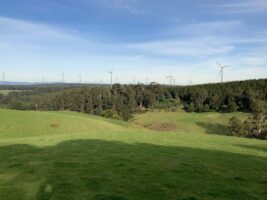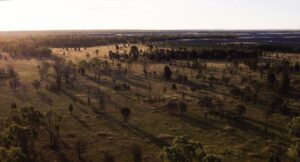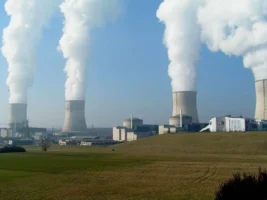Despite a federal election result that promises a new era of political support for the Australian renewable energy industry, a major report warns of a tough road ahead for a market still feeling the effects of supply-chain “long Covid.”
The report, by specialist renewables insurer GCube, says the last two years of Covid-19 shut-downs and geopolitical turmoil have severely impaired the global renewable energy industry’s ability to support climate resilience, economic recovery, and energy independence.
In particular, a shortage of cargo reaching its destination, and reduced capacity at supply sources to process and release new stock, has seen prices for both raw commodities and assembled components skyrocket.
The effects of this were felt first and foremost in the global solar industry, as RenewEconomy has reported.
But price hikes are now squeezing the renewables market in three key areas: steel for wind, polysilicon for solar, and high-tech components for the sector at large – most crucially for batteries.
In the case of a wind farm, GCube notes that even just a minor percentage increase in the cost of turbine blades can add hundreds of millions of dollars of extra costs to a project.
“[And] the ripple effect goes on and on,” the report explains, “with prices and risks for the developer, contractor and insurer climbing to astronomical levels.”
For Australia, this has been felt particularly keenly, due to a combination of its geographical isolation, and therefore complete reliance on international trade, and its long-standing shortage of skilled labour that is already struggling to keep pace with the rate of market growth.
Meanwhile, the policy vacuum at the federal level up until this point has exacerbated the situation.
“The unique challenges to the Australian market present in its relative lateness to the party in pushing for renewable energy development, and the speed at which it aims to catch up,” the report says.
“The resulting renewables sector struggling with supply chain and cost inflation issues is one which is largely under-prepared on all fronts and lacking the guidance and support required to prepare for the continuing impacts.”
GCube says that the combined result of all of the above is a “claims landscape” in Australia that is considerably more turbulent than in other global markets.
Already, the report notes, a number of renewables EPC contractors have been pushed into liquidation in the Australian market – a situation that was unfolding even before Covid, due to unforeseen project delays around grid connection.
“The market, therefore, already exposed to a higher frequency of business interruption or delayed start up, faces potentially greater severity of … claims than existing markets with more diverse supply options and a broader range of skilled contractors,” the report says.
Meanwhile, new insurers entering the Australian renewables market are exposed to considerable losses in the event of claims – a risk factor that has driven some away from the market, thus limiting the depth of experience required to support growth.
“Extended lockdowns in key manufacturing hubs like China have demonstrated the clear disadvantages of isolated supply routes, and over-reliance on singular sources to support entire industries, such as solar,” the report concludes.
“Diversification is sorely needed to give developers more options to source replacements within their downtime policies, lest they find their lost revenues uninsured.”
GCube says answers to Australia’s “long-Covid” problems will be multi-pronged, but include dedicated renewables insurers – such as GCube, of course, which established an Australian base in Sydney in April – with industry-tested frameworks and experience.
“Insurers should take ownership of their responsibility as an educating force within the market and work with their insureds to help them understand how to mitigate long-term risks,” it says.
“As we continue to face ongoing supply chain disruption, unprecedented demand and inflated prices, the insurance industry and renewable energy sector must find ways to support each other through proactive, positive action.”







